How Often Do Puppies Poop? [What is Normal?]
It’s rare to run into someone who doesn’t get excited about a tiny, brand new, adorable puppy. Practically everyone you meet will want to say hi, play with him, and snuggle him close.
But at the end of the day, that puppy is solely your responsibility. That includes the love and kisses, but it also involves the not-so-glamorous aspects—like puppy poop.
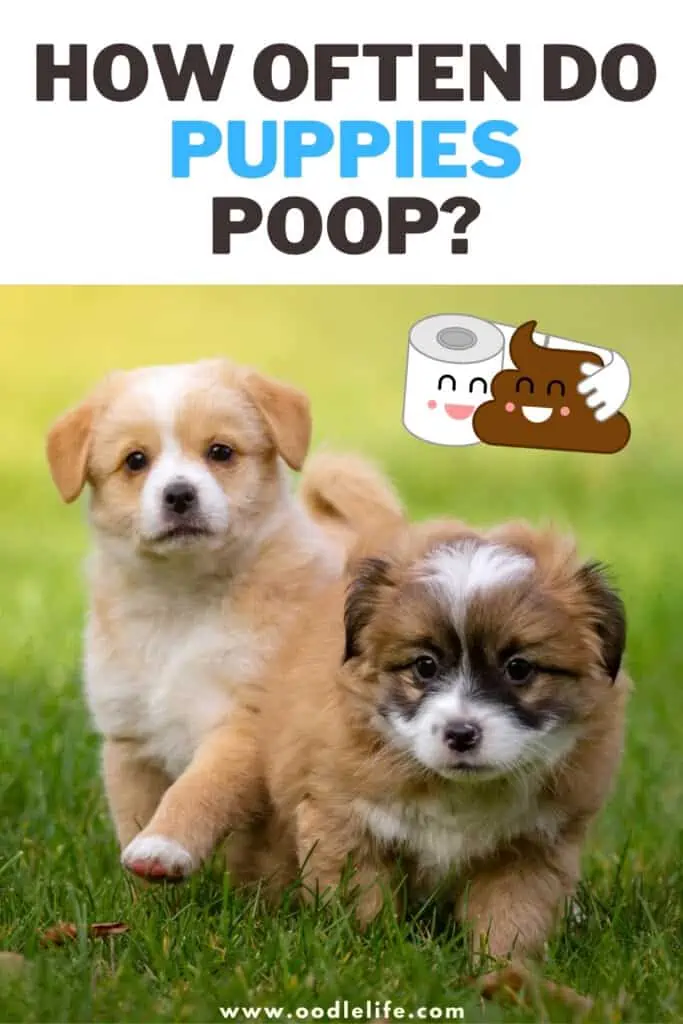
How often do puppies poop, anyway? That’s the question we’re here to answer, along with some other helpful information to keep your pup happy and healthy.
How Often Do Puppies Poop?
On average, you should expect your puppy to poop somewhere in the ballpark of five times per day. There’s no solid rule on this, so don’t be too concerned if it’s only four times or closer to six or seven times.
The bigger concern for your puppy should be whether his poop is normal or not. Your puppy may go several times a day, but as long as it’s looking normal, you shouldn’t have anything to worry about.
More on that below!
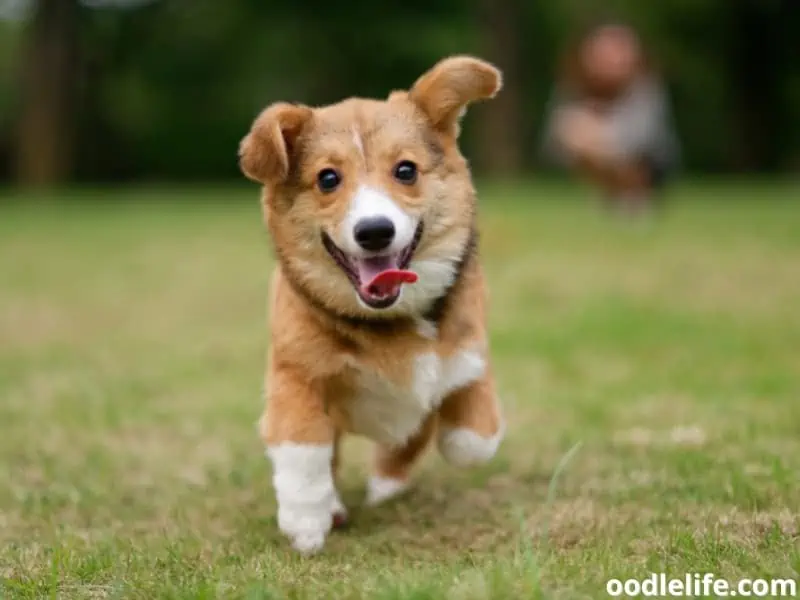
How to Tell If a Puppy’s Poop Is Normal?
We’ve already mentioned “normal puppy poop” several times, but what exactly does that mean? Pooping five or six times a day may be a normal frequency, but healthy puppy poop also involves other aspects such as consistency, color, and content.
Solid Consistency
Normal puppy poop will have a solid consistency that maintains a log-like shape. His bowel movements should indicate moisture, but it should be easy to pick up in one piece. At the same time, you should be able to squish it with some pressure.
Watery, runny poop that does not hold its shape can indicate some kind of upset stomach. Likewise, your puppy’s poop should not come out in round, hard droppings, as that can be a sign of dehydration.
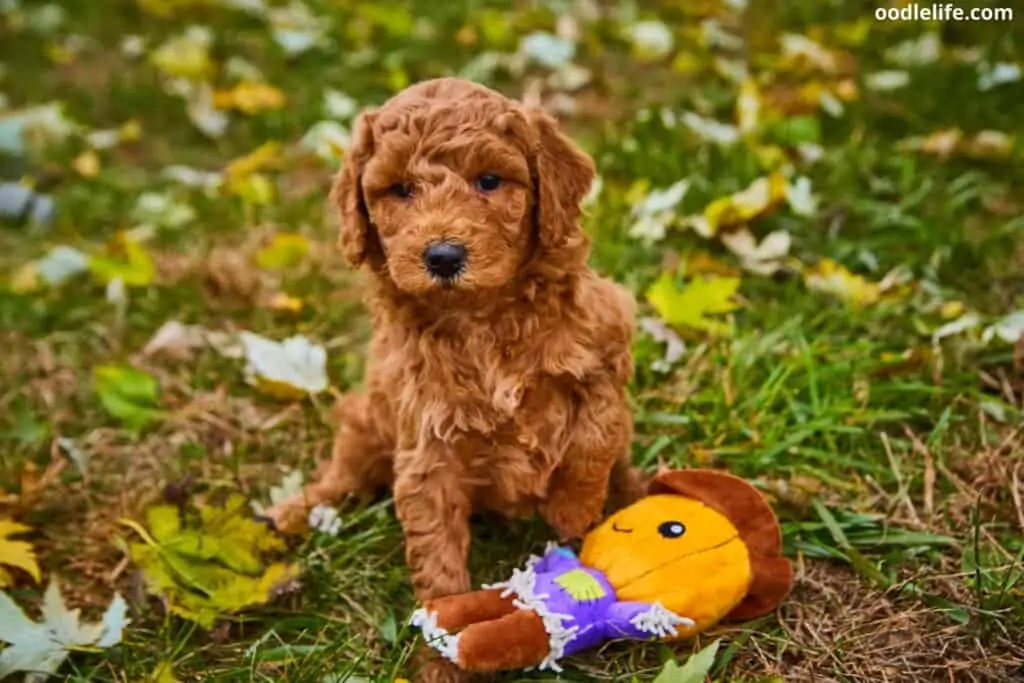
Normal Color
The normal color for any dog, puppy or adult, is a chocolate brown shade. Additional colors in your dog’s stool can mean that something is wrong, or it could be something very simple.
For instance, green colors in your dog’s poop could indicate a gallbladder issue .
Black poop means that your dog is experiencing bleeding in the upper GI tract and needs immediate medical attention, and orange poop can be a sign of liver issues.
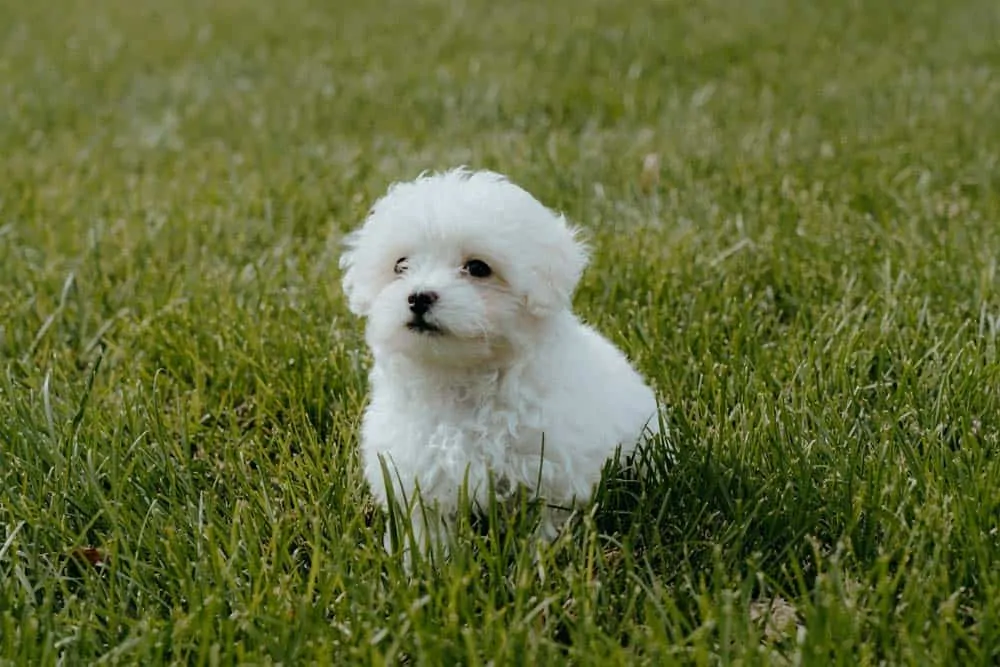
Content
It’s also important to pay attention to the content of your puppy’s poop. Normal puppy poop will be brown and smooth, maintaining its shape with little to no chunks and bumps.
But other content can tell you that there’s a digestive problem going on.
If your dog has been eating grass, you will find it in his poop. Small white pieces in his poop can mean that he has worms, and mucus in the poop could be a sign of gastric upset.
Pay attention to the content of your puppy’s poop to make sure he isn’t sick or into something he shouldn’t.
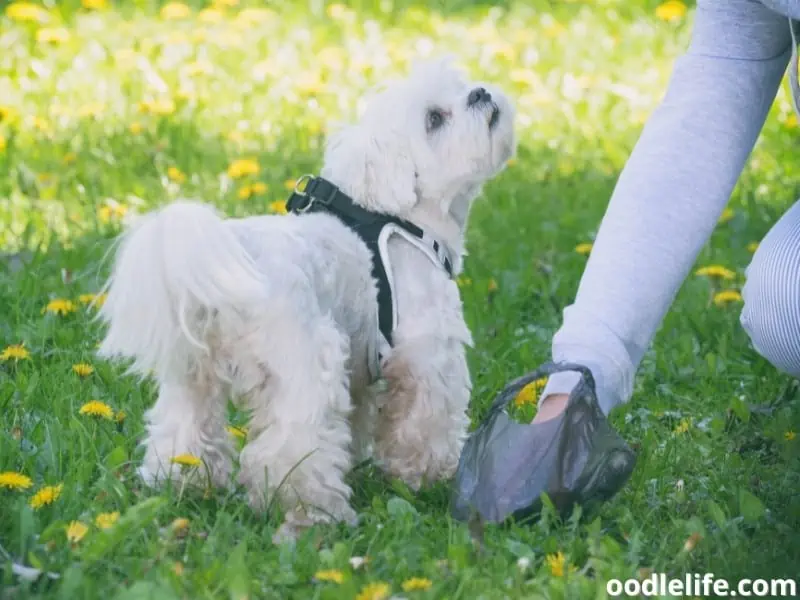
Best Times to Take Your Puppy Out
The best way for your puppy to learn to do his business outside is to keep him on a solid routine. He’ll pick up on the schedule faster than you might expect.
Sticking to a routine is also a fantastic way for you to monitor his bowel movements so you can make sure his digestive system is functioning properly.
Your schedule will vary depending on your daily routine, which may include children or work, but it’s a good idea to take your puppy out for potty time around this schedule:
- First thing in the morning
- After each meal
- After playtime
- Following a nap
It’s not uncommon for puppies to need to do their business in the middle of the night. Not only are they untrained at this point, but their young bodies have little to no control over digestion.
So, it’s a good idea to take them out right before bedtime and get up at least once during the night to take them out again.
Additionally, take your puppy out the same door and to the same place each time he goes out. Doing this will help him learn that this is the potty spot, not the corner of your bedroom.
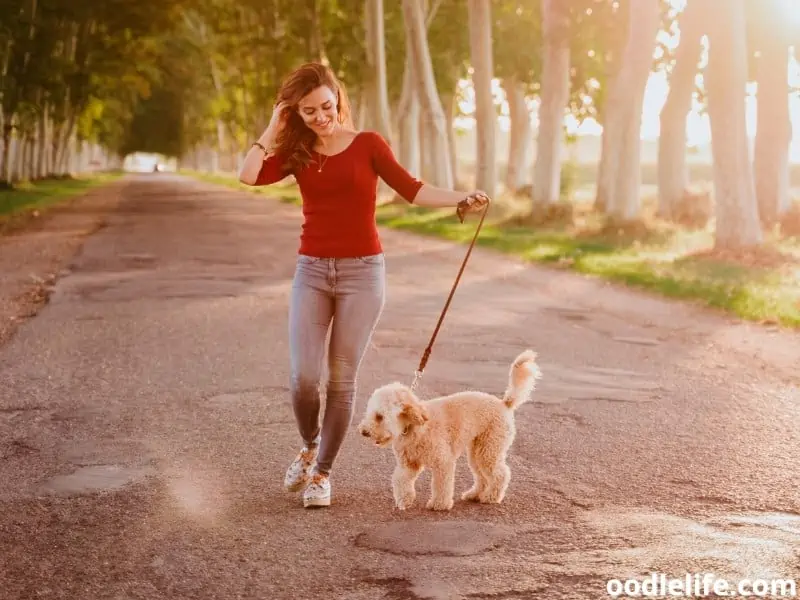
Signs Your Puppy May Have a Digestive Issue
There are a few obvious signs that can show your puppy is having some digestive issues that need to be taken care of right away.
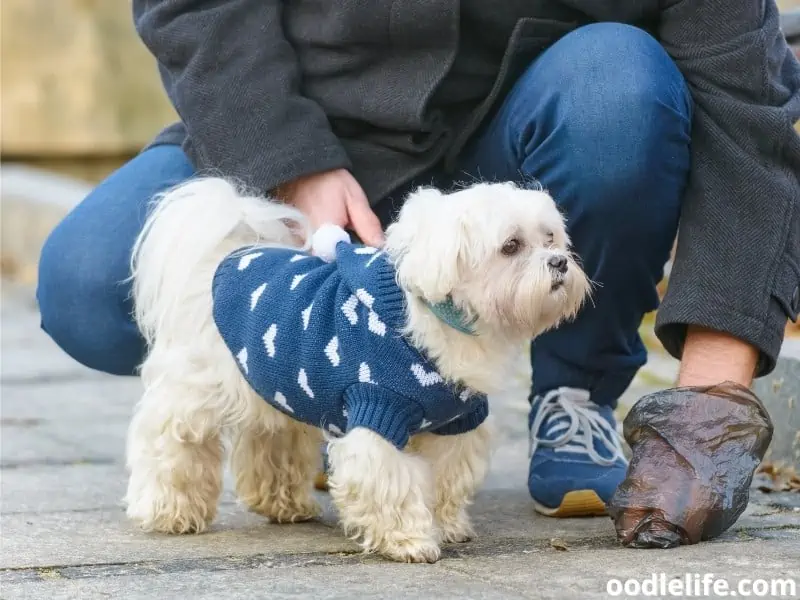
Diarrhea
Diarrhea is one of the most common digestive issues we see in puppies and dogs. If your puppy is having diarrhea, it could be a sign of several different things, including:
- Bacterial infection
- Food intolerance
- Viral infection
- Parasites
- Stress
Your puppy may have also just gotten into the trash or something it shouldn’t be eating.
Monitor your puppy’s digestion for 24 hours. If he only has diarrhea once, it’s likely not a significant issue. If it continues for longer than 24 hours, contact your vet. Your puppy can quickly become dehydrated due to this issue.
Do not wait to call your vet if your puppy has diarrhea accompanied by fever, bloody stool, pain, or vomiting.
Constipation
If your puppy suddenly reduces the number of times he poops per day and is only passing dry, hard stool, he may be constipated. This may also be the case if you see your puppy squatting and straining to poop, but nothing comes out.
In puppies, constipation is often a result of them swallowing a foreign object, which blocks the colon and causes build-up and impaction.
Your puppy may also be stressed, dehydrated, or have a poor diet. Contact your vet immediately if you notice signs of constipation.
Blood
Blood in your puppy’s stool is cause for an immediate call to your vet. In some cases, your puppy may simply have a dietary indiscretion, which is easy to fix.
However, blood can indicate far more serious issues including parasites, parvovirus, hemorrhagic gastroenteritis, and rectal polyps.
Final Thoughts
Puppies are a lot of work, and the potty training phase can feel like the longest stretch ever. But with a little bit of help from the experts and a lot of patience, you and your puppy will come out better on the other side.
Be sure to monitor your puppy’s potty habits and pay attention to how often your puppy poops to make sure he’s regular, healthy, and happy.